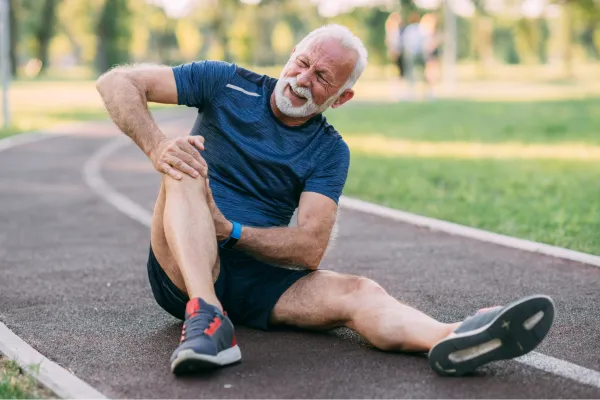
Is It Arthritis or Just a Weak Knee? Here’s How to Tell
Let’s be honest.
Knee pain sucks. Whether it flares up when you walk down stairs, stiffens up after sitting too long, or keeps you from your favourite activities—it’s frustrating.
But the real frustration? Not knowing what’s actually causing it.
Is it arthritis? Or just a weak, unstable knee?
Most people can’t tell the difference. They Google symptoms, get conflicting answers, and either ignore the pain or overreact. Both are risky. And both can lead to more pain and more problems.
Let’s clear that up—right now.
First: What Arthritis Feels Like
Arthritis in the knee typically shows up with:
Stiffness, especially in the morning or after inactivity
A deep, achy pain in the joint
Swelling or warmth around the knee
Grinding, clicking, or catching sensations
Pain that gets worse with activity and eases with rest (at first)
Arthritis is a wear-and-tear issue. It usually develops gradually. The cartilage wears down, joints get inflamed, and pain becomes part of your daily life. If you’re over 45 and this sounds familiar, arthritis could be the likely culprit.
Now: What a Weak Knee Feels Like
Weak knees aren’t always about age. They’re about muscle imbalance, poor control, or lack of strength. You might have:
Wobbly or unstable knees during movement
Sharp pain when using stairs or getting up from a chair
Fatigue in your legs during daily tasks
Pain that improves with warm-up and gets worse with overload
No significant swelling or heat
Weakness in your glutes, quads, or hamstrings can all contribute. Even poor ankle control or hip stiffness can shift load onto your knees and make them scream.
But here’s the thing—you can have both.
It’s not uncommon for someone with early arthritis to also have muscular weakness, which makes the pain worse. That’s why getting a professional assessment is so important.
How Physiotherapy Can Give You Clarity—and Relief
At our sports injury clinic in Ballincollig, we don’t guess. We test.
We assess your movement, strength, joint mobility, and alignment. We find out what’s really behind your pain. Then we build a treatment plan that actually works.
Here’s what that can include:
Targeted strengthening to stabilise your knee, support the joint, and reduce pain
Manual therapy to ease stiffness, improve mobility, and reduce inflammation
Joint-specific rehab exercises to improve control, balance, and endurance
Education so you stop aggravating the joint with daily habits or poor posture
Pain relief strategies that don’t rely on painkillers or surgery
Whether it’s arthritis knee pain or just weakness, the right treatment makes a massive difference. You don’t have to settle for aching, clicking, or stiff knees.
You’re Not Broken—You’re Deconditioned
Let’s ditch the fear.
Many people hear “arthritis” and panic. They assume it’s all downhill from here. Not true. In fact, strength training and rehab are the best ways to manage knee arthritis and avoid surgery.
If your knee is just weak? Even better. You’re not injured. You’re just untrained. And that’s totally fixable—with smart, structured physio.
When to See a Chartered Physiotherapist
If your knee pain is:
Persistent for more than 2 weeks
Worse in the morning or after sitting
Limiting your activity, confidence, or independence
Paired with swelling, clicking, or instability
…it’s time to get checked.
Our rehab services in Ballincollig help people every week who thought they were “just getting old” or “probably need surgery.” They’re now walking pain-free, running again, or simply climbing stairs without wincing.
Call to Action (CTA)
Don’t guess. Don’t wait. And definitely don’t let knee pain become your new normal.
Book a knee pain assessment today at our physiotherapy clinic in Ballincollig. Let’s find out exactly what’s going on—and fix it at the root.